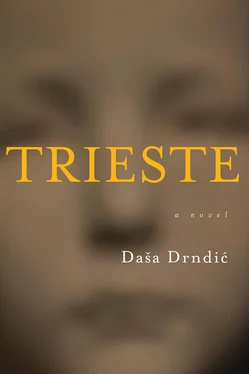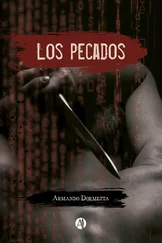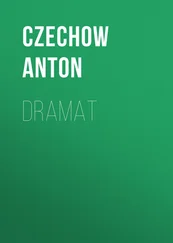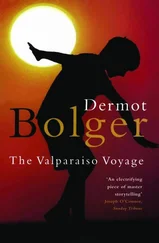Parlarti? e pria che tolta per la vita
mi sii, del tutto prenderti? — che giova?
che giova, se del tutto io t’ho perduta
quando mia tu non fosti il giorno stesso
che c’incontrammo?
While Argia Cassini, Argia Cassini the pianist, in love with Carlo Michelstaedter, plays, writes Roberto Piazza, Carlo paints her portrait, a portrait of Argia Cassini, and on the piano a crystal glass of Picolit rings, and their lips touch and touch the marzipan and blackberries nestled in a warm Gorizia pastry. Argia has thick dark hair, writes Roberto Piazza, and she is twenty-one, the same age as Carlo. Argia Cassini is in the convoy that takes Elda, Carlo Michelstaedter’s sister, first to Mauthausen, then to Auschwitz, Roberto Piazza writes. When the Nazis arrest Argia Cassini and seize all of her property, writes Piazza, she entrusts her daughter forever to the care of her school and wartime friend Elsa Finzi. Roberto Piazza wishes to remind her, Haya Tedeschi, he writes, of her three compatriots, who were taken to Auschwitz that terrible night in November 1943, where Carlo’s eighty-year-old mother Emma and his eldest sister Elda die almost as soon as they arrive, while the third, Argia Cassini, the pianist, dies a year later, writes Roberto Piazza, and he wants her, his former maths teacher, to look for Professor Verzegnassi (he believes the man lives at Via Giovanni 1, if he is still alive) to tell him that he can trust his former pupil Roberto Piazza and send him the drawing of Carlo’s, which along with more of Carlo’s writings Professor Verzegnassi managed to preserve, through the war, from the Nazis, who were bent on destroying what they called degenerate art, because Roberto needs the drawing for the book he is designing, and he will return it to him personally as soon as he comes up to Gorizia, and he will write to him himself, all he needs is his teacher’s blessing, Roberto Piazza writes. He understands the fate of his teacher, Haya Tedeschi, and he urges her to comb through Carlo’s thoughts on persuasion and rhetoric, because in them she may find respite from her nightmares, but, of course, he is not advising her to kill herself. Small towns always have a contingent of chronically unhappy people, writes Roberto Piazza, and hence the general atmosphere of unhappiness leads to numerous suicides to which the weather conditions also contribute. In small towns people are always inclined to suicide. All of them have the feeling they are suffocating, because they are not able in any way to alter the situation they find themselves in. Bernhard says so, too, writes Roberto Piazza. He, Roberto Piazza, agrees with Carlo Michelstaedter that human life is formed of remorse, a guilty conscience, melancholy, boredom, fear, rage and suffering, and that all man’s endeavours show how much he, man, is a passive being who throughout his life re-works, revises and appends his own biography and the biographies of those around him, writes Roberto Piazza. Therefore he doesn’t blame her, his former teacher, for not knowing who was doing what and who was doing the killing at the San Sabba camp, while she, Haya Tedeschi, was going to the cinema and engaging in lovers’ trysts.
An infernal messenger flew just now along the avenue
to a chant of thugs; an orchestra pit,
firelit and arrayed with swastikas,
seized and devoured him, the windows,
shabby and inoffensive, though adorned
with cannon and war toys, are shuttered up,
the butcher who laid berries on the snouts
of his slaughtered goats has closed; the feast
of the mild murderers still innocent of blood
has turned into a foul Virginia reel of shattered wings,
larvae on the sandbars, and the water rushes in
to eat the shore and no-one’s blameless any more .
So this is how Roberto Piazza wraps up his letter, with lines from Montale, as if she, Haya Tedeschi, doesn’t get it. Long after the war, and until just a few years earlier, Haya Tedeschi had been reading all sorts of texts, even Michelstaedter; she read Heidegger and Wittgenstein; she studied the paintings of Kokoschka, Kirchner and Heckel, looking through those works for confirmation of her own rage at language, for her own revolt against the European logocentric tradition, which had proved to be deeply vacuous, if, indeed, vacuity has depth, seeking from these works endorsement for her campaign to confront language; out of many years of painful reckoning she emerged, faltering and mute, the loser. This much she sees. She is aware that her disdain for language subsides in a schism, much like a gaping wound in the middle of which swirls a terrifying silence, death transformed. Life is a delusion for those who function rhetorically, the scientist and merchant, the teacher, the priest and prophet, Michelstaedter says, and Haya agrees and wonders with him how to find again what has disappeared in the course of living, what has been lost, what perhaps never was, the nothing that begins to think, which says to itself I have my inner being, which I do not know . When a spirit no longer finds its identity anywhere, when everything it knows as constant, enduring, all values in their outward form disappear, it searches for the sole surviving identity, for the source of all values, the key to all valency. If the experience of historical events is, in essence, the experience of the self, then to possess oneself means to possess everything, Michelstaedter says, and Haya concurs. But self-awareness is an illusion, elusive and impossible to attain. Self-awareness leads to self-destruction.
Haya senses that a little cemetery is sprouting in her breast with a jumble of tilting tombstones like the ones at the old Valdirosa burial ground; she feels as if the already rotten, damp and blackened crosses and faded stars are knocking against her ribs; they are crowded, the crosses, the stones, the stars seem to be growing in her breast, reaching her throat and choking her, so she says, I’m having trouble breathing . There is a need to look inside, set to rights the proliferating hotchpotch before it breaks through her armour, before she, like a gigantic hedgehog, continues along the paths of her everyday life, before this cemetery of hers in her breast collapses and in its place yawns a chasm at the bottom of which, in the dark, beats a tired heart. She can no longer say whose heart this is.
In 1991 Haya Tedeschi is already retired, but fully in gamba . She goes off for walks, because the walks shorten her wait. She listens to symphonic music, because symphonic music has no words and everything that has no words is fine with Haya Tedeschi. She plays with mathematical formulas, turns them around and shifts them, comes up with new ones, remembers old ones, tries to tailor a new language using symbolic language. Words are quickly exhausted, Haya Tedeschi says. I no longer know what to do with them, she says
Je suis né. Je suis né de l’ombre,
je suis né dans l’ombre et mon désir
fut longtemps qu’on ne m’arrache pas
à l’ombre où je suis
and says out loud the words of Pierre Goldman as if they are hers. One should speak with the hands, using the language of the deaf and dumb, Haya says, there would be fewer misunderstandings, the messages would be short and terse, she says, and starts moving her twisted fingers, gesticulating with her wrinkled palms as if shooing or summoning shadows. Then she laughs aloud and says Bah!
Haya Tedeschi looks at the envelope sent to her by her former student Roberto Piazza, of whom she has no recollection. It is a thick envelope, bulging, and inside are only the dead. Haya Tedeschi shivered back then in 1991 and laid the envelope on the bottom of the red basket, as if lowering it into a grave. Now, in 2006, while she waits, while she sifts through the past as if opening dry beanpods from which the beans fall like sealed, enslaved little stories composed of images flitting by in flashes, while she digs through the red basket at her feet uncovering the crusty layers in the little piles of sealed lives, out slips the envelope, so she puts it on her lap and rocks it as if it is a stillborn child.
Читать дальше












